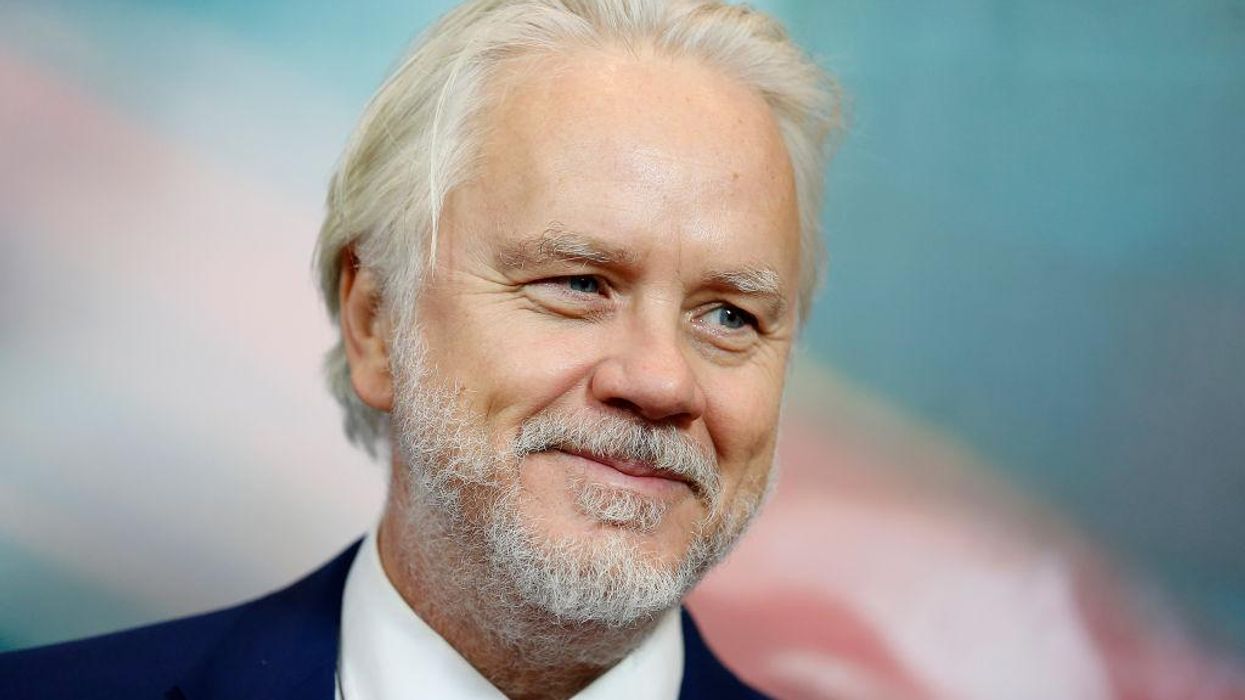
Photo by John Lamparski/WireImage

Leftist actor Tim Robbins appeared on British comedian Russell Brand's podcast this week to retroactively denounce the politicization of health policies during the pandemic and to express remorse about his uncritical acceptance of the media's COVID-19 narrative.
In the Dec. 18 episode of Brand's podcast, Robbins, an Academy Award-winning actor, explained his journey from strict compliance with government edicts early in the pandemic to one of doubt about the inerrancy of so-called health experts and the official narrative constructed around COVID-19, vaccination, lockdowns, and masking.
Despite having initially "bought into it" and "adhering to the requests" made of him, Robbins explained that his real-life encounters were ultimately at odds with what he had otherwise been told about the pandemic, anti-lockdown protesters, and the unvaccinated. This generated a sense of cognitive dissonance, prompting him to doubt the official narrative.
Robbins said he was living in Los Angeles when the pandemic first struck.
Schools, bars, gyms, churches, and campgrounds were blocked off or shut down. Residents were confined to their homes. Mask-wearing was made mandatory. The state's Democratic Gov. Gavin Newsom likened the unvaccinated to drunk drivers. Los Angeles Mayor Eric Garcetti told the unvaccinated to prepare to lose their jobs.
"I bought into it. ... I was masking everywhere. I was keeping my social distance. I was adhering to the requests made of me, and I felt angry at people that didn't do that," Robbins told Brand.
Although he saw thriving areas that were not strictly following statist health protocols when he drove across the U.S., it was not until he visited the United Kingdom that Robbins acknowledged the possibility that he may have been wrong to unquestioningly accept the official pandemic narrative.
In Britain, he "noticed a lot of people were not adhering again to these requests made by their government. I thought, well, they're going to have a hard day coming up, that there will be some serious death here."
"When I saw that there wasn't a huge death rate [in Britain], after I witnessed personally what was happening, I started to wonder more and more about what we were being told and whether it was true or not."
The catastrophe of and for the unvaccinated that Robbins and others were guaranteed by the Western governments and the media hadn't come to be. He began to wonder what else wasn't so.
The actor recalled navigating through an anti-lockdown protest in London. Robbins hadn't joined because he supported the protest, but rather because he was curious.
\u201cMassive protest march in London today. Thousands and thousands arriving in Trafalgar Square. #NoVaccinePassports #NoVaccineMandates\u201d— Tim Robbins (@Tim Robbins) 1642862430
"I saw the way that they were being described in the press, and it wasn't true," he said. "These were not, you know, National Front Nazis. These were liberals and lefties and people who believed in personal freedom."
Robbins suggested that the pandemic was particularly politicized in the United States.
Brand concurred, suggesting that "there is a lot more political ideology at play than is perhaps wise, prudent, or even honest when the claim that is being made is that we are following science."
Robbins admitted, "At first, if you were a Democrat, when Trump was president, well, you weren't going to take that vaccine because it was Trump's vaccine, and then that seemed to somehow change. It was kind of Orwellian. It was like we are no longer at war with East Asia."
However, after the political winds shifted and Democrats assumed power during the pandemic, Robbins noted, "If you didn't take the vaccine, you were a Republican."
The end result, according to Robbins: "We turned into tribal, angry, vengeful people."
\u201cThis is such a powerful commentary by actor Tim Robbins (in discussion with Russell Brand) on the horrendous demonisation of those who questioned the response to Covid. \n\n@TimRobbins1\n@rustyrockets\u201d— James Melville (@James Melville) 1671451301
Robbins previously told investigative reporter Matt Taibbi, "I think we lost a lot of ourselves during this time."
"I heard people saying [during the pandemic], 'If you didn’t take the vaccine and you get sick, you don’t have a right to a hospital bed.' It made me think about returning to a society where we care about each other. Your neighbor would be sick, and you’d bring over some soup. It didn’t matter what their politics were, you’re their f---ing neighbor," said Robbins.
The actor suggested to Taibbi that those who dehumanize and divide others "often think they're being virtuous."
Robbins accepts that he too was swept up into the ranks of the socially destructive.
"You go from someone that is inclusive, altruistic, generous, empathetic, to a monster. Where you want to freeze people’s bank accounts because they disagree with you," he said. "That’s a dangerous thing. That’s a dangerous world that we’ve created. And I say 'we,' because I was part of that. I bought into that whole idea early on."
While Robbins and others have admitted guilt, others would prefer to gloss over their dehumanization of those treated as pariahs for standing up to coercive pandemic protocols.
TheBlaze previously reported that Emily Oster, an economist at Brown University, demanded a "Pandemic Amnesty" in the pages of the Atlantic.
Unlike Robbins, Oster suggested that blind compliance to health edicts and demonization of dissenters "wasn't a moral failing" and that "we need to learn from our mistakes and then let them go. We need to forgive the attacks, too."
The Covid Redemption with Tim Robbinsyoutu.be